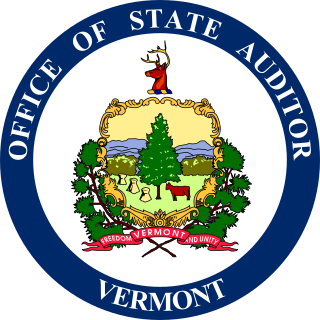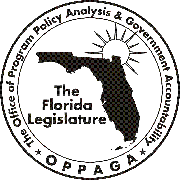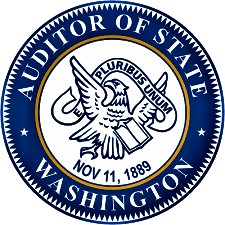
The Sarbanes–Oxley Act of 2002 is a United States federal law that mandates certain practices in financial record keeping and reporting for corporations. The act, Pub. L. 107–204 (text)(PDF), 116 Stat. 745, enacted July 30, 2002, also known as the "Public Company Accounting Reform and Investor Protection Act" and "Corporate and Auditing Accountability, Responsibility, and Transparency Act" and more commonly called Sarbanes–Oxley, SOX or Sarbox, contains eleven sections that place requirements on all U.S. public company boards of directors and management and public accounting firms. A number of provisions of the Act also apply to privately held companies, such as the willful destruction of evidence to impede a federal investigation.

An audit is an "independent examination of financial information of any entity, whether profit oriented or not, irrespective of its size or legal form when such an examination is conducted with a view to express an opinion thereon." Auditing also attempts to ensure that the books of accounts are properly maintained by the concern as required by law. Auditors consider the propositions before them, obtain evidence, roll forward prior year working papers, and evaluate the propositions in their auditing report.
In May 2003, following the invasion of Iraq in March of that year, the Central Bank of Iraq-Development Fund for Iraq (DFI) account was created at the U.S. Federal Reserve Bank of New York at the request of the Coalition Provisional Authority (CPA) Administrator. A part of the fund has been transferred to Baghdad and Iraq, and the DFI-Baghdad account was opened at the Central Bank of Iraq "for cash payment requirements". The fund also eventually received money from seized and "vested" Iraqi bank accounts and funds seized by coalition forces. $650 million of this amount belongs to Uday Saddam Hussein, the older son of the former Iraqi president. The DFI have been disbursed mainly for "the wheat purchase program, the currency exchange program, the electricity and oil infrastructure programs, equipment for Iraqis security forces, and for Iraqi civil service salaries and ministry budget operations".

The state auditor of Massachusetts is an elected constitutional officer in the executive branch of the U.S. state of Massachusetts. Twenty-six individuals have occupied the office of state auditor since the office's creation in 1849. The incumbent is Diana DiZoglio, a Democrat.

Rebecca Otto is an American politician who served as State Auditor of Minnesota from 2007 to 2019. Affiliated with the Minnesota Democratic-Farmer-Labor Party (DFL), she served in the Minnesota House of Representatives from 2003 to 2005 and on the Forest Lake School Board.

The New York state comptroller is an elected constitutional officer of the U.S. state of New York and head of the New York state government's Department of Audit and Control. Sixty-one individuals have held the office of State Comptroller since statehood. The incumbent is Thomas DiNapoli, a Democrat.

The Oklahoma State Auditor and Inspector is an elected Constitutional officer for the U.S. State of Oklahoma. The State Auditor and Inspector is responsible for auditing and prescribing bookkeeping standards of all government agencies and county treasurers within Oklahoma. The office in its current form is a consolidation of the office of State Auditor with that of the office of State Examiner and Inspector, both of which dated back to statehood in 1907. The two positions were combined in 1979 after passage of State Question 510 in 1975. Tom Daxon was the first person to hold the combined office and the first Republican as all previous occupants of either position were Democrats.

In the United States, the Single Audit, Subpart F of the OMB Uniform Guidance, is a rigorous, organization-wide audit or examination of an entity that expends $750,000 or more of federal assistance received for its operations. Usually performed annually, the Single Audit's objective is to provide assurance to the US federal government as to the management and use of such funds by recipients such as states, cities, universities, non-profit organizations, and Indian Tribes. The audit is typically performed by an independent certified public accountant (CPA) and encompasses both financial and compliance components. The Single Audits must be submitted to the Federal Audit Clearinghouse along with a data collection form, Form SF-SAC.
Internal control, as defined by accounting and auditing, is a process for assuring of an organization's objectives in operational effectiveness and efficiency, reliable financial reporting, and compliance with laws, regulations and policies. A broad concept, internal control involves everything that controls risks to an organization.

The auditor of accounts of Vermont, informally referred to as "the state auditor", is a constitutional officer in the executive branch of government of the U.S. state of Vermont. Twenty-nine individuals have occupied the office of state auditor since statehood. The incumbent is Douglas R. Hoffer, a Democrat/Progressive. He was first elected to office in 2012.
The Australian National Audit Office (ANAO) is the supreme audit institution of Australia, functioning as the national auditor for the Parliament of Australia and Government of Australia. It reports directly to the Australian Parliament via the Speaker of the House of Representatives and the President of the Senate. Administratively, the ANAO is located in the Prime Minister and Cabinet portfolio.
The Pennsylvania auditor general is the chief fiscal officer of the Commonwealth of Pennsylvania. It became an elected office in 1850. The current auditor general of Pennsylvania is Republican Timothy DeFoor.

The Office of Program Policy Analysis and Government Accountability (OPPAGA) is the research arm of the Florida Legislature. OPPAGA supports the Florida Legislature by providing data, evaluative research, and objective analyses that assist legislative budget and policy deliberations. State law, legislative leadership, and the Joint Legislative Auditing Committee determine OPPAGA's research issues. OPPAGA's research focuses on improving program performance, saving money, and ensuring that program activities are appropriate. Since 1998, the state has saved $857 million by adopting policy options and recommendations presented in OPPAGA reports. OPPAGA operates under the guidance of a coordinator appointed by the Joint Legislative Auditing Committee and confirmed by the House and Senate.
Mary Zarrilli Connaughton is a former board member of the Massachusetts Turnpike Authority. Connaughton was a candidate for Massachusetts Auditor in 2010.

Katherine Marlea Clark is an American lawyer and politician who has served as House Minority Whip since 2023 and the U.S. representative for Massachusetts's 5th congressional district since 2013. She previously served as Assistant Speaker from 2021 to 2023 and Vice Chair of the House Democratic Caucus from 2019 to 2021. Clark was a member of the Massachusetts House of Representatives from 2008 to 2011 and the Massachusetts Senate from 2011 to 2013.

The Office of theSpecial Inspector General for Afghanistan Reconstruction (SIGAR) is the U.S. government's leading oversight authority on Afghanistan reconstruction. Congress created the Office of the Special Inspector General for Afghanistan Reconstruction to provide independent and objective oversight of the Afghanistan Reconstruction funds. Under the authority of Section 1229 of the National Defense Authorization Act for Fiscal Year 2008, SIGAR seeks to conducts audit, inspections, and investigations to promote efficiency and effectiveness of reconstruction programs, and to detect and prevent waste, fraud, and abuse of taxpayer dollars. SIGAR also has a hotline that allows individuals to report suspected fraud.
The Massachusetts general election, 2014 was held on November 4, 2014, throughout Massachusetts. Primary elections took place on September 9, 2014.

The state auditor of Washington is an independently elected constitutional officer in the executive branch of the government of the U.S. state of Washington. Eleven individuals have held the office since statehood. The incumbent is Pat McCarthy, a Democrat and the first woman to occupy the office.

Nicole Marie Galloway is an American accountant and politician who served as the state auditor of Missouri from 2015 to 2023. She was the Democratic nominee for Governor of Missouri in the 2020 election, losing to incumbent Republican Mike Parson.

The 2018 Massachusetts general election was held on November 6, 2018, throughout Massachusetts. Primary elections took place on September 4. Early voting took place from October 22 through November 2.

















